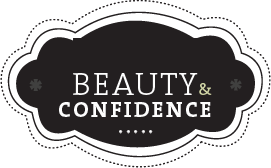You’re stuck in traffic on the way to your son’s soccer game, your kids won’t quit bickering, and the supermarket line is absurdly long. All the little things that go wrong each day can add up to one stressed-out parent.
“Women don’t realize they’re living under chronic stress, because it has become the new normal,” says psychologist Gregory Jantz, Ph.D., founder of The Center, Inc., A Place of Hope, a mental-health treatment facility in Edmonds, Wash., and author of How to De-Stress Your Life. All that stress does more than make you irritable and tired. “Chronic stress can lead to constant headaches, insomnia and depression,” says Jantz.
To make things worse, when moms get frazzled, healthy me-time behaviors that can make you feel better, such as exercising and sleep, are often the first to go.
So indulge in me time for once … without guilt. Try these six easy strategies; science has proven they’re good for your body. Your family will thank you!
It’s OK to … take a nap.
If you’re exhausted, a simple snooze can help you recharge. When researchers from the Université Libre de Bruxelles in Belgium followed sleep-restricted men, they found that their levels of the stress hormone cortisol dropped immediately after they took a nap. So sometimes, give yourself permission to put the kids in front of the TV and take a 30-minute power nap. But be picky about the show; Jantz recommends educational programs on the National Geographic Channel or the Discovery Channel. And don’t rely on the television to be your regular babysitter.
It’s OK to … skip your workout.
Exercise is linked to an abundance of health benefits: decreased risk of diabetes and heart disease, reduced feelings of depression and anxiety, weight maintenance, lower risk of some cancers and more. “There’s no doubt that being physically active is good for you, but once in a while, getting extra rest can refresh your mind and body,” says Stephen Ball, Ph.D., associate professor of nutrition and exercise at the University of Missouri. So if you just can’t squeeze your 30-minute jog or yoga DVD into a jam-packed day, give yourself a break.
Worried that you’ll stall your progress? Taking a day or two off won’t set you back in terms of your fitness level. “It’s OK to miss a workout,” says Ball.
It’s OK to … go on a date.
If you can’t remember the last time you and your husband went out without the kids, it’s time to initiate a weekly date night. “At home, it’s easy to create a system of dysfunction and stress, so it’s healthy to get out and have fun with your spouse,” says Jantz.
Get started by shaking up your usual Friday-night routine. Instead of a movie, plan an activity that encourages communication. Make a reservation at a cool new restaurant (go for Thai or Indian food instead of your usual Italian), sign up for a dance lesson, or take a cooking class.
Finally, follow these hard-and-fast rules to ensure your night out is quality time for two: 1) Don’t talk about the kids, and 2) Don’t talk about work.
It’s OK to … turn on the TV.
“A silly show that makes you smile can be a simple pleasure,” says Jantz. Laughter increases your pulse, stimulates circulation, increases oxygen intake and helps you relax, according to the American Heart Association. It also triggers the release of feel-good hormones called endorphins.
Laughter reduces stress as well. A recent study in the journal Psychosomatic Medicine tracked 18 people while they watched a 30-minute clip from a funny movie or a stressful movie. Researchers discovered that laughter decreased levels of the stress hormone cortisol.
It’s easy to help your whole family reap the health benefits of laughter: Rent a funny movie, take turns reading from a joke book before dinner, or play practical jokes, suggests Jantz.
It’s OK to … dish up a scoop of ice cream.
Making your favorite treats off-limits fosters an unhealthy relationship with food -- and it sets you up to overeat eventually. You don’t have to eat healthy all the time, says Ball. “One good strategy is to eat healthfully most days, but allow yourself one free day per week in which you eat what you want,” he says.
If you prefer, you can simply make your indulgence healthier: Try nonfat frozen yogurt instead of full-fat ice cream, reach for an ice-cream sandwich (instant portion control), or add fresh berries for a dose of vitamins and antioxidants. For a creamy snack that packs serious protein, have low-fat Greek yogurt drizzled with honey.
It’s OK to … talk on the phone.
“Talking to a trustworthy, supportive friend is a great way to combat stress,” says Jantz. “Ideally, you should have at least three people like this in your inner circle.” In a review published in the journal Psychiatry, when researchers looked at dozens of studies on the connection between social networks and well-being, they found that people with social support tend to bounce back better from stressful situations. Just be careful that chat sessions don’t turn into gripe sessions. “It should not be a whining and complaining session where you talk negatively about your spouse and your kids,” says Jantz.
Like this article? Get more by following us @FaceEveryDay or friending us on Facebook at Beauty & Confidence.
Photo: Corbis Images






